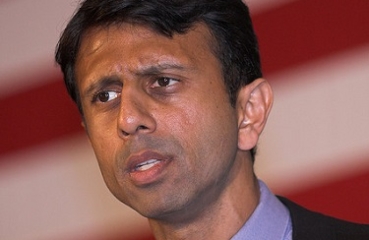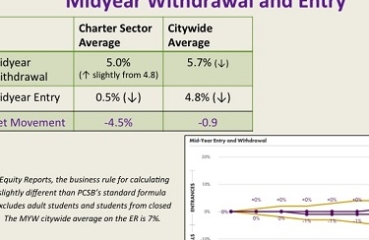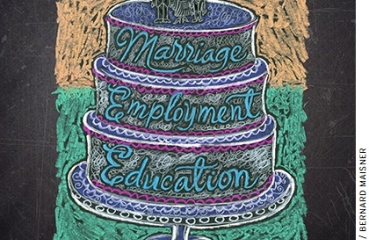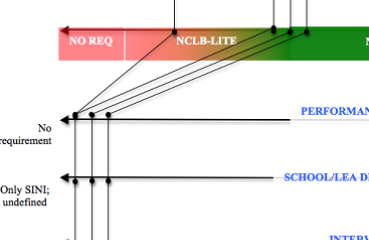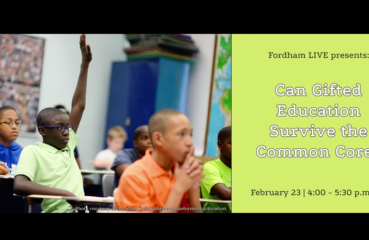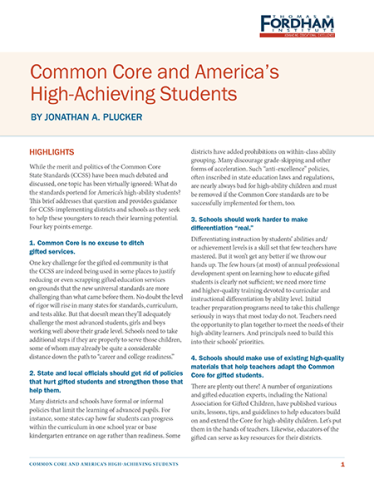How can schools address America's marriage crisis?
Michael J. PetrilliIt’s irresponsible for educators and policymakers to ignore the issue. Michael J. Petrilli
An apology
Michael J. PetrilliI remember reading an interview with a successful business leader once. It went something like this:Reporter: What’s the secret of your success?CEO: Good decisions.Reporter: How do you make good decisions?CEO: Good judgment.
CPAC's Common Core vaudeville show
Robert PondiscioI’d like to see Bobby Jindal use a teleprompter the next time he attacks Common Core. I’d like to be reassured he knows how to read.
Using equity reports to drive school improvement in D.C.
When we talk about high standards, accountability, and school choice, one essential element is often overlooked: giving parents and education leaders information they can actually use. It’s one thing to produce data, but quite another to make it useful—easily understood, comparable, and actionable.
Four ideas for Montgomery County Public Schools
Michael J. PetrilliThe sudden departure of Joshua Starr, superintendent of Montgomery County Public Schools, caught many by surprise—including Starr.
Finding life lessons for students on the obituary page
Character education with real characters. Peter Sipe
Memo to teachers' unions: Now might be a good time to start panicking
In “Collective Panic,” Martha Derthick and I argued that teachers’ unions dodged a major blow in Harris v. Quinn (2014) but that they should hold off on popping the champagne.
The state-led ESEA compromise
A few weeks ago, I used a graphic to show the four dimensions of federal accountability, each of which has a range of options. I then used this graphic to show the consensus for preserving NCLB testing.
Spinning Straw into Gold
Ellen AlpaughHow state education agencies can use their data to make better resource decisions. Ellen Alpaugh
School Closings in Chicago: Understanding Families' Choices and Constraints for New School Enrollment
Aaron ChurchillWhat happens to the students after their schools get shut? Aaron Churchill
Life in the Fast Lane: Effects of Early Grade Acceleration on High School and College Outcomes
Amber M. Northern, Ph.D.Kids who skip grades stay ahead of the pack. Amber M. Northern, Ph.D.
America's Millennials: Overeducated and unprepared
Robert PondiscioA sobering new report says our most educated generation still can’t compete. Robert Pondiscio
The conservative case for H.R. 5
Chester E. Finn, Jr.Power returns to the states. Chester E. Finn, Jr.
Can gifted education survive the common core?
Jonathan Plucker, Rena Subotnik, and Tricia Ebner discuss what the new standards portend for high achievers.
NEW from Fordham: Common Core and America's High-Achieving Students
The Education GadflyWhile the merit and politics of the Common Core State Standards (CCSS) have been much debated and discussed, one topic has been virtually ignored: What do the standards portend for America’s high-ability students? In a new brief from Fordham, Jonathan Plucker, professor of education at the University of Connecticut’s Neag School of Education, provides guidance for districts
Scott Walker doesn't need a college degree—and neither do you
Michael J. PetrilliThe pundit class is raising questions about whether Scott Walker’s lack of a college degree disqualifies him from being America’s forty-fifth president. This is what educators call a “teachable moment” because the issue goes much deeper than Governor Walker’s biography.
Common Core and America's High-Achieving Students
Jonathan PluckerGadfly editorial by Chester E. Finn, Jr. and Amber M. Northern
Can gifted education survive the Common Core?
Chester E. Finn, Jr., Amber M. Northern, Ph.D.Higher standards are no excuse to ditch gifted services. Chester E. Finn, Jr. and Amber M. Northern, Ph.D.
An ode to Common Core kindergarten standards
This post originally appeared in a slightly different form at Psychology Today.
Five ideas to strengthen the No Child Left Behind reauthorization proposals
Michael BrickmanFor the first time since No Child Left Behind became law in 2002, the Elementary and Secondary Education Act (ESEA) stands a real chance to be reauthorized by Congress. It’s been at least seven years since it was supposed to be re-upped, and it’s overdue for some changes.
Ed Trust Midwest report on Michigan's charter authorizers: A decent start, but hardly the final word
Michael J. PetrilliFollowers of Fordham’s work know that we are obsessed with charter school quality, both nationally and in our home state of Ohio. We are also a charter school authorizer, responsible for overseeing a portfolio of eleven schools in the Buckeye State—a job we take very seriously.
Getting observations right
Recent research has shown that it may be more difficult for teachers of students with certain background characteristics (i.e., low achieving, poor, minority) to score highly on teacher observations.
Exponential Growth, Unexpected Challenges: How Teach For America Grew in Scale and Impact
Alyssa SchwenkTFA’s hard work and honorable open-mindedness. Alyssa Schwenk
Dual enrollment course content and instructor quality
Michael BrickmanThe pros and cons of college courses in high school. Michael Brickman
Kids in Crisis, Cobwebs in Classrooms
Amber M. Northern, Ph.D.Put empty Milwaukee school buildings to use for kids who desperately need them. Amber M. Northern, Ph.D.
The central problem with Jason Riley's argument
Michael J. PetrilliWe at Fordham are big fans of Jason Riley, a Wall Street Journal columnist who just joined the team at the Manhattan Institute.



